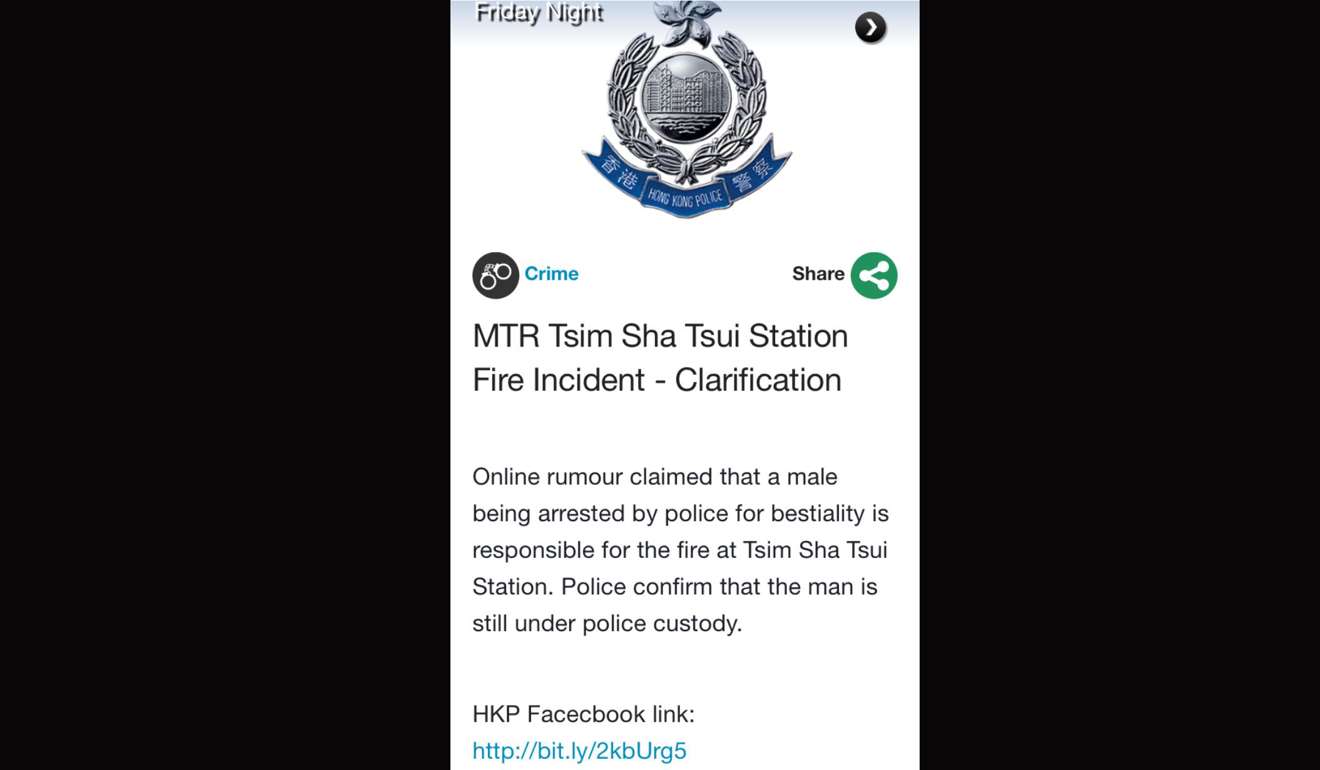
Hong Kong police turn to Facebook to counter online rumours in major incidents
Prompt use of social media by the force after MTR firebomb attack proved a hit with public and stopped the spread of falsehoods
The city’s police force has said it will use social media to make sure information gets out faster following major incidents such as last week’s MTR firebomb attack.
Senior Superintendent John Tse Chun-chung of the Police Public Relations Branch said in the aftermath of last Friday’s attack, the force had continuously updated its Facebook page and mobile apps in an effort to stop to viral online rumours, maintain public order and avoid panic.
“Social networks have tremendous viral effects,” Tse said.
“There are always falsehoods circulating online. And reporters need time to verify their content with us.
“If we only rely on the traditional media to send out information for us, it will take a while to stop the rumours or correct the information.”
The firebomb attack, which left 19 people injured, took place on a packed MTR train arriving at Tsim Sha Tsui station at about 7pm on February 10.
One rumour, which circulated online after the attack, claimed that a man who appeared in court for bestiality that morning was responsible for the attack. Others claimed it was a terrorist incident.
Within two hours of the incident, the force had issued two statements on its Facebook and mobile apps – one on traffic arrangements and another to confirm that the man arrested for bestiality was still in police custody at the time of the attack.
Now the police can deliver their message in full without being cut by the media
That force issued six Facebook posts and five alerts on mobile apps that night, including one ruling out a terrorist attack. The posts drew more than 544,000 users.
Tse said while government departments must go through multiple time consuming procedures before issuing an official statement, internet users nowadays demanded instant news.
He also stressed that the force had no intention of competing with local news media.

“We are not aiming to be the fastest source, but the most accurate and reliable one.”
Tse said using the more casual communication channel would not affect the force’s public image.
“Social media and mobile apps are our official channels, but not the only ones. We still present the official response on most cases in traditional ways,” he said.
Lawmaker and security expert James To Kun-sun welcomed increased usage of social media, saying traditional media tended to edit statements at press conferences when reporting the news.
“Now the police can deliver their message in full, without being cut by the media. This can avoid misunderstandings,” To said. “But the force must ensure the accuracy of the information.”

